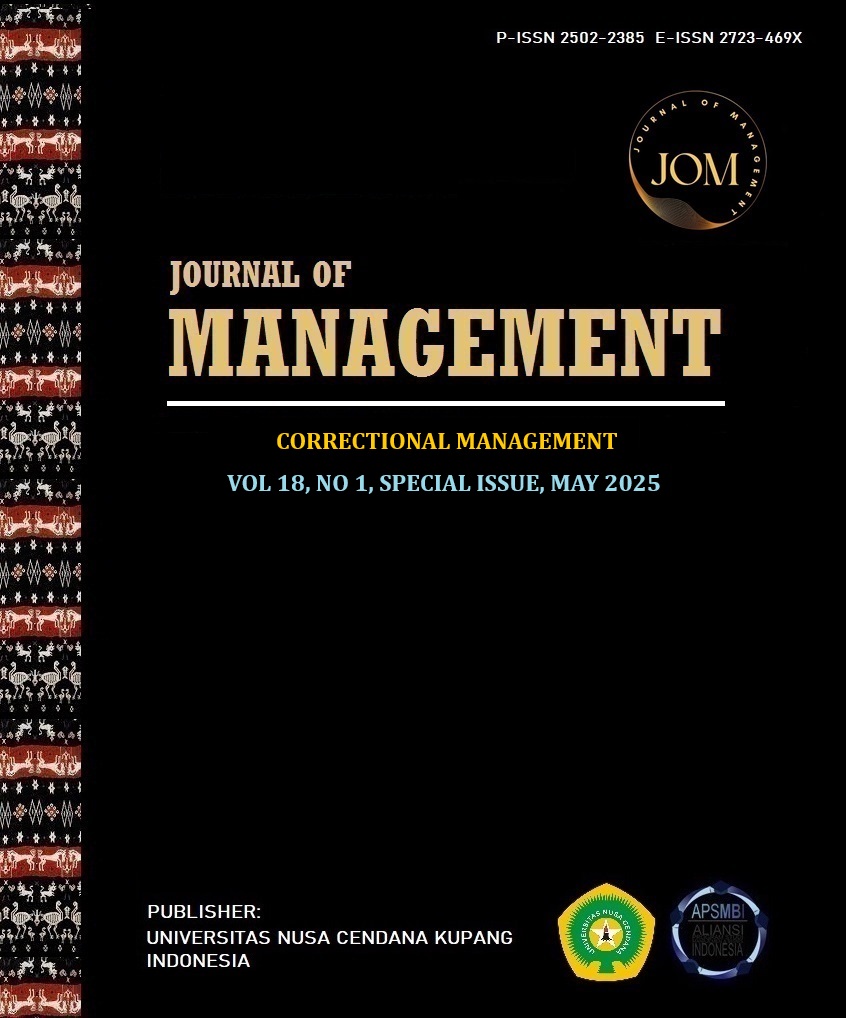CHARACTER EDUCATION MODEL IN BUILDING THE CHARACTER OF CHILDREN IN SPECIAL CHILDREN GUIDANCE INSTITUTIONS (LPKA)
Abstract
This article explores the implementation of character education models in Pembinaan Institutions Special for Children (LPKA) as an essential approach in rehabilitating children in conflict with the law. In the face of complex social and emotional challenges, children in LPKA often experience behavioral and emotional issues that require special attention. Character education serves as both a tool to transform negative behaviors into positive ones and a means to build a strong and healthy personality foundation. The model emphasizes the inculcation of universal values such as honesty, discipline, responsibility, empathy, and cooperation, tailored to the unique needs of these children within the Indonesian cultural context. A supportive learning environment and varied instructional methods, such as experiential learning and project-based activities, are highlighted as key elements in engaging children and fostering their understanding of moral values. The article also discusses the importance of ongoing evaluation and staff training to ensure the program's success. Additionally, the article identifies both supporting and inhibiting factors in the implementation of character education in LPKA, including the need for positive environments, family participation, and sufficient resources, while addressing challenges such as social stigma, emotional instability, and administrative issues. Ultimately, the character education model aims to rehabilitate children, equipping them with moral integrity and resilience as they reintegrate into society after their time in LPKA.
Keywords: Character Education; Juvenile Rehabilitation; Moral Values
Downloads
References
Julaiha, S. (2014). Implementation of Character Education in Learning. Dinamika Ilmu, 14(2), 226-239. https://doi.org/10.21093/di.v14i2.15
Masturin. (2023). Modeling the Way Learning Model in Applying Character Education Values to Early Childhood. Jurnal Obsesi: Journal of Early Childhood Education, 154-162.
Ningsih, T. (2015). Implementation of Character Education to improve quality in schools. Book, 7(1), 61
Suherman, et al. (2024). Representation of Character Values in Kampung Naga as a Reference for Developing Teaching Materials for Pancasila and Citizenship Education. Suherman, et al., 140-147.
Syafi'i, et al. (2023). The Effectiveness of Educational Management in Forming Personal Character. Journal of Economics and Business UBS, 1905-1913.
Tati & Amir. (2024). Social Studies Learning in Elementary Schools Based on Character Education. USK Journal, 786-793.
Zuriah, N. (2018). Social Engineering Model For Character Education in Higher Education. Atlantis Press, 143-147.

 Karina Wenita Sitepu(1*)
Karina Wenita Sitepu(1*)



